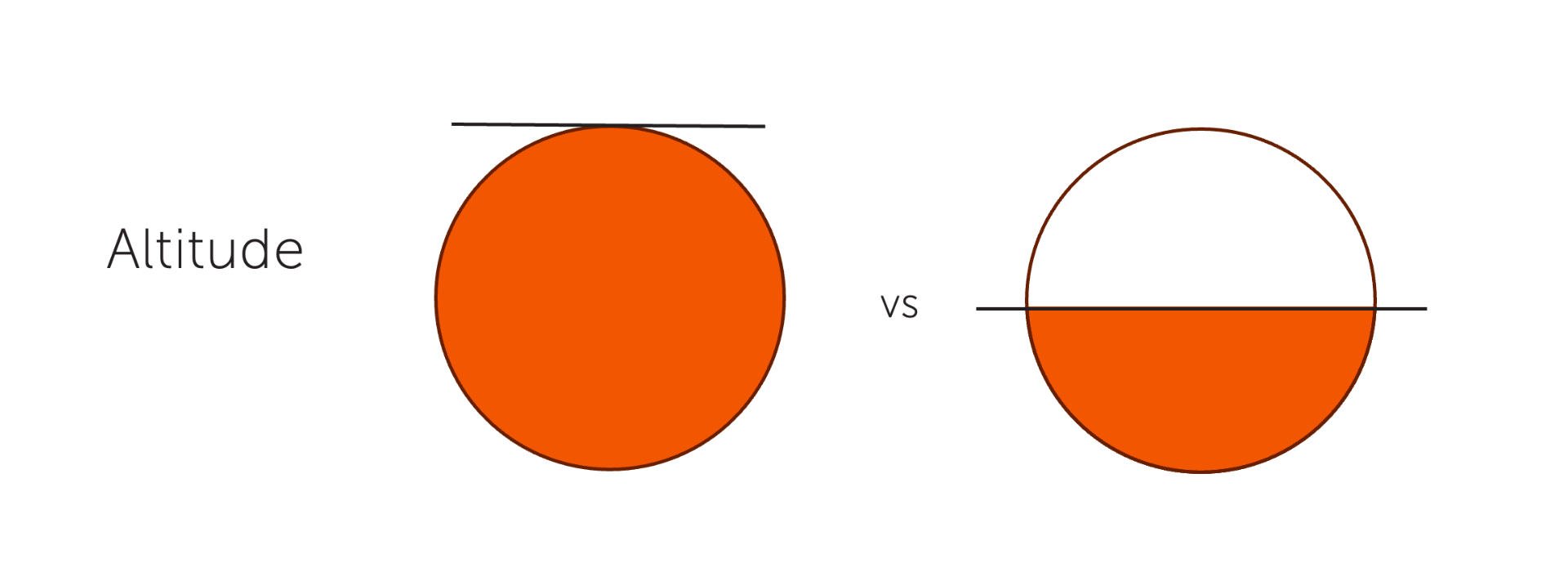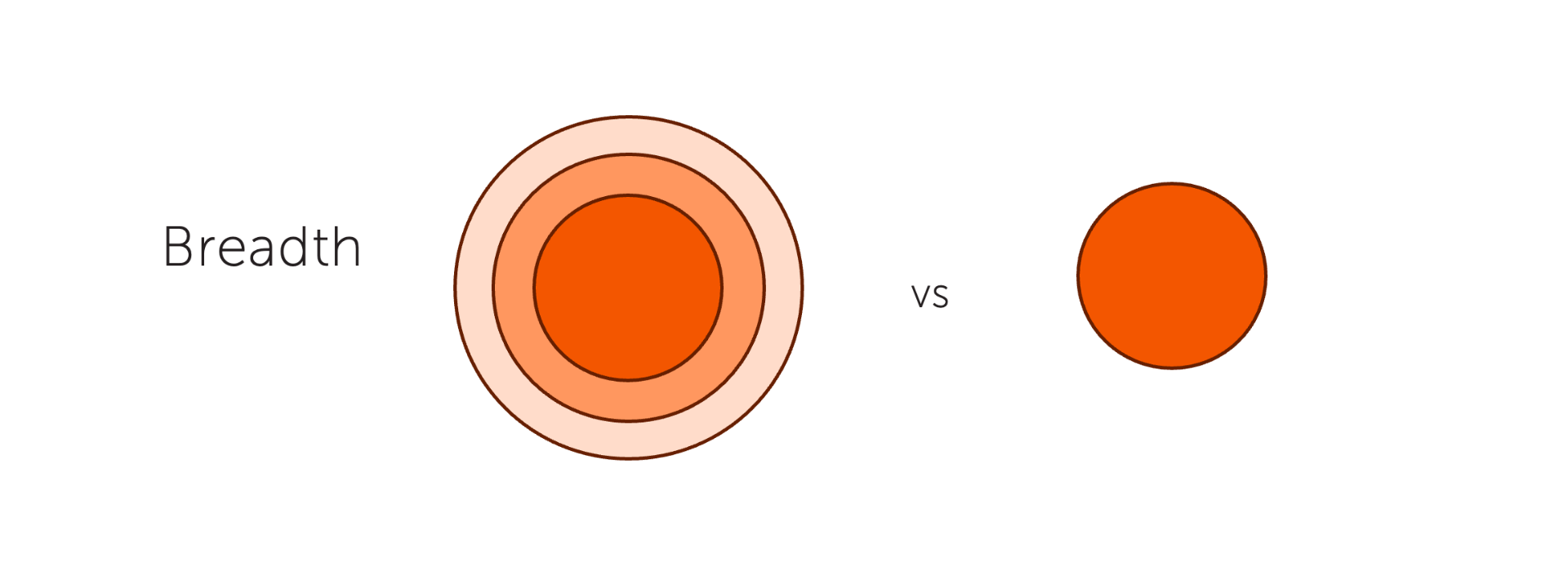How to navigate the brand vs. advertising partner decision to pick your dream team

If you’re a homeowner, the idea that your house is “good as is” and can remain untouched for some time is laughable. From quick fixes like scuff marks on the wall to larger time and dollar investments like a kitchen remodel, your home never stands still.
Your brand, the home of your business, is not much different. Your audience is constantly evolving, and with it, their needs and expectations. To remain relevant, desirable, growth-oriented, and profitable, your brand must keep pace.
Just as you need to choose wisely from the roster of experts you can call when something in your home needs updating, your brand necessitates the same consideration and care when selecting a partner to help it grow—whether we’re trying to jump start a new step forward or protect ourselves from volatility.
But with money, resources, and time on the line, how do you know who to tap for help? One of the biggest points of confusion brands and the leaders who guide them face when making this decision is whether to involve a brand consultancy or an advertising agency. This challenge is made even messier as each of these organizations go by many names themselves, like brand experience company, brand agency, brand consultancy, or growth advisor as well as advertising shop, creative agency, and comms partner.
On the surface, brand and advertising companies may seem similar – both offer insights-driven strategic and creative services, both aim to help you connect with your audiences at deeper levels, and both promise to drive business results often with a more long-term or a more short-term orientation. However, the reality is that these two types of partners have fundamentally different approaches, capabilities, and areas of expertise.
So, who warrants that phone call? Well, that all depends on the problem you’re trying to solve, and it’s not as easy to identify as you may think.
The brand partner breakdown
Brand consultancies
Brand consultancies fix foundational issues in the brand that are keeping organizations from achieving long-term goals. They specialize in identifying and resolving deep-rooted problems within a brand’s identity, positioning, and engagement tactics. Through thorough research and analysis, brand agencies gain insights into the target audience, market trends, and the competitive landscape. They then develop comprehensive brand strategies that align with the organization’s mission, values, and objectives, and help them activate their new or refreshed brand to ensure clarity and consistency across all touchpoints. Along with building and activating, brand partners leverage their depth with the organization to also explore how to transform over the long-term. significant, and meaningful change.
Brand consultancies also emphasize organizational alignment and commitment to change. They understand that a successful brand change requires buy-in from all levels of the organization, from the C-suite to front-line employees. By fostering collaboration and communication, these partners help ensure a smooth and effective transition, from old to new, from past to future, and from service- or experience-driven to transformation-driven.
By investing in a comprehensive brand strategy, incorporating the right level of activation, and committing to ongoing brand management, organizations set themselves up for sustainable growth and long-term success, even in highly competitive and unpredictable landscapes.
Advertising agencies
Advertising agencies, on the other hand, prioritize short-term, campaign-specific goals. Their primary focus is on creating immediate impact and driving specific behaviors, such as increasing awareness, generating leads, or boosting sales in a specific area. They excel at crafting compelling communications that capture attention and inspire action.
Advertising partners are experts at creating a sense of urgency, such as a limited time deal, an upcoming event, or a new product, service, or initiative. They strategically deploy these campaigns across a carefully curated set of channels to reach an audience that is most likely to engage and convert.
By leveraging data-driven insights and creative expertise, advertising agencies craft compelling narratives and calls-to-action that resonate with the target audience and motivate them to take the desired action within a specific timeframe. Ideally, this work is anchored by a clear and compelling definition of the brand, which would have been crafted by the brand partner outlined above. This targeted approach enables communicators to capitalize on fleeting opportunities, maximize the impact of their marketing dollars, and achieve measurable results.
Touch-up or ground-up? Start with the problem
So, how do you decide which type of partner is right for you? Rather than diving straight into solutions, you’re more likely to pick the right partner if you first spend time with the problem you’re trying to solve.
Below, we deep dive into four factors that help organizations determine the size, scale, and nature of their problem so they can engage the best partner to set them on the path to prosperity.
1. Altitude: The depth of the problem

When evaluating the expertise needed to address your company’s challenges, start by considering the altitude or depth of the problem. You need to determine the level at which you are examining and defining the issue at hand. Are you looking down from a 5,000 foot platform at foundational issues like long-term resonance and market resilience, or are you staring from a 10 foot level, at immediate, tactical concerns that require swift action and targeted solutions?
To answer this question, consider, for a moment, that your brand is your home. If you have a foundational issue with your house, every room, wall, and feature is at risk. You can’t even begin to think about how a new piece of furniture would look, or a new light fixture would elevate the mood of the room. Instead, your focus needs to remain on fixing the foundation so that your house will be habitable for your family.
Think of your brand as that foundation. Without a solid structure to build on, no other element of your organization will be able to thrive as effectively as it could. Organizations that have a foundational problem are characterized by a lack of clarity, consistency, and alignment across business, brand, culture, and experience. Oftentimes, it feels like you’re flying blind, and consequently suffer from audiences that don’t understand the value proposition or how their offerings are different from competitors in the space.
For these types of challenges, a is bound to be the best choice. These companies specialize in deep, strategic work that gets to the heart of who you are as an organization. Much like rebuilding the foundation of a house, this process requires careful planning, attention to detail, and a long-term perspective. When the foundation is strong and established, customers will feel safe and your business will tell a story that expresses the values it was built on.
Brand partners are also typically positioned to secure buy-in across the organization for any change that has to take place. This is like making sure the family is on board when you have to address that foundation problem, as opposed to, say, the arrangement of toys in a kid’s room where you only need the permission of the kid who lives there – the parents just need to be made aware.
On the other hand, think about a standout feature of your home, like a new accent wall. This solves a very different type of problem, depicted by the desire to make a bold and immediate impact. For organizations looking to drive specific, targeted, and more immediate potential results, an advertising agency may be the best direction. These companies excel at developing creative ideas and experiences that leverage your existing brand elements, assets, and tools to achieve specific objectives, such as launching a new product, boosting seasonal sales, or generating buzz around a particular initiative. Sometimes, these partners introduce a new style or element into the mix in order to accomplish some type of “aha!” moment in the space. This could even look and feel different from the brand in its typical form.
2. Time orientation: the short vs. the long-term

The second aspect to consider is the time orientation of your goals. Are you looking for a quick fix or a lasting solution?
Let’s return to your house for a moment. Consider the difference between adding a new room to your house versus a fresh coat of paint. Families that choose to spend the time and money to invest in adding onto their home are in it for the long haul. Beyond the immediate benefit of added space, they’re thinking about the long-term value of their home and how the new area will adapt to the evolving needs of their family, like an aging relative moving in or a new baby on the way.
Brand partners are best equipped to set organizations up for long-term growth and sustainability. Much like building an addition on to your home, working with a brand agency is an investment in your organization’s future. These partnerships focus on creating a strong, adaptable brand foundation that can withstand the test of time and evolve with your business as it grows and faces new challenges.
But what might propel you to forgo a more comprehensive overhaul and instead freshen up your look with a new coat of paint? If your foundation is solid, and your home is structurally meeting your needs, you may not need to invest the time and effort into an extensive renovation.
Similarly, organizations who are either not worried about their long-term viability, or not ready to invest in it, can turn to advertising agencies to boost their recognition and revenue in the short term. These companies will concept and execute campaigns that are highly adaptable and dynamic, constantly being adjusted to communicate the “now” of your offering(s). While these solutions are effective in the short term, they’re not necessarily designed for long-term sustainability. Of course, there is advertising that has stood the test of time, and this isn’t always the original problem that was intended to be solved.
3. Goals: ascertaining ambition

When defining the problem you’re aiming to solve, it’s essential to have a clear understanding of your ultimate objectives. After all, you wouldn’t hire an electrician to solve a plumbing problem, would you?
If you’ve set your sights on a transformative goal, such as better resonance with your target audience, expansion into new markets, or repositioning to adapt to changing industry dynamics, partnering with a brand partner will provide the strategic guidance and comprehensive mindset needed to meet these objectives.
However, if your goals are more near-term, along the lines of lead generation, sales, or bolstering a major initiative such as an event, a new product, or a cultural moment, an advertising agency is probably your best bet. These companies leverage their expertise in ideation, media planning, and performance marketing to deliver tangible, measurable outcomes that can be powerful.
Whether your goal is brand- or advertising-oriented may not be that obvious from the get-go. Imagine you’re struggling with an electrical issue in your home in your home. Your goal will likely be to fix the problem. So, naturally, you call an electrician.
But when the electrician takes a deeper look, it’s possible they’ll uncover that it’s a short caused by a leaky faucet that happens whenever you run an upstairs sink. The electrician may be able to address the issue with the short temporarily, but the fact that you have a plumbing issue will happen every time you run the sink until you get a plumber out to solve that root cause problem.
The same ambiguity can be true for your brand or problem. You may set out to launch a hard-hitting campaign only to find your audience doesn’t respond to it, or it doesn’t drive the results you were hoping for. These are sometimes then syndromes of a larger brand problem that even the best advertising agencies can’t solve.
4. Breadth: The scope of change

Finally, consider the breadth of impact you want or need to achieve. Whether you’re embarking on a foundational transformation or putting forth resources toward a new communications campaign, change is inevitable. The question is, how far-reaching should the change be?
Think about the difference between redoing your kitchen and baby-proofing your home to welcome a new member of the family. Making over your kitchen can be quite the endeavor, but ultimately, your living room and your bedroom won’t be impacted. But when you add a new purpose to your home, every inch of the house holds the potential for change. And it should—you can’t do just one room.
Advertising agencies are best suited to help you or change a singular facet of your business that can be solved with communications, whether that be perception around a specific product, a targeted campaign to drive seasonal sales, or a focused effort to engage a new customer segment.
Brand agencies, conversely, take a more holistic and potentially transformational approach that impacts every touchpoint and stakeholder. Just like a baby-proofing endeavor will change every nook and cranny of your home, from your cabinets to your extension cords, a brand transition will touch everything from your website and your business cards to your employees’ behaviors toward each other and your customers, to the way your support team answers the phone.
If your scope of change goes beyond the here and now, a brand partner is the partner you need to help you navigate this complex journey and emerge with a strong, cohesive, and compelling enterprise strategy and expression that changes the way audiences think about their needs and drives your business forward.
Renovating your brand; remodeling your marketing
At this point, you’re probably asking yourself, is this really an either/or question? What if I want my house to have a solid foundation AND an updated kitchen with cutting-edge appliances and a textured accent wall?
The answer is no, of course you don’t have to choose between the two. But you do need to fix the uneven flooring before you install a new oven.
The same is true for your brand and advertising challenges, which both fall under the same umbrella of business problems. Both of them impact your bottom line, and both need to be addressed to remain profitable today and in the future.
Without the foundation of a strong, resonant, and resilient brand, your advertising campaigns are bound to fail. Similarly, a solid brand is not enough to keep an organization afloat. You must communicate about it with expertly crafted messaging initiatives to gain traction in the market and create a sense of urgency to drive people to choose or to advocate for you.
The world’s most powerful organizations recognize the time and place for both brand-building and targeted advertising, and they work with the right partners at the right times to develop each, treating them as individual yet interconnected disciplines.
Building your dream team
Choosing between a brand agency and an advertising agency is much like choosing between an architect and a carpenter. The right choice depends entirely on what you’re trying to accomplish. And, in your home or your brand’s lifespan, you will likely need both at different junctures. Knowing when to make each call, and in what order, is your key to prosperity.
Remember, the right partner will be more than just a vendor – they will be a strategic collaborator, invested in your success. By choosing wisely and working together, you can create a powerful brand experience that resonates with both your team and your audience and drives meaningful results for your organization.
Are you wrestling with a brand problem and don’t know who to call? Monigle specializes in helping organizations build brand, activate change, and transform business for the future. Let’s chat about the future of your organization’s brand home.



